SparkFun Artemis Module - Engineering Version
The engineering version has been retired but you can now buy the fully certified module here!
The Artemis Module from SparkFun is a Cortex-M4F with BLE 5.0 running up to 96MHz and with as low power as 6uA per MHz (less than 5mW). This is the world's first module to bridge the market between hobbyists and consumer products. We've packaged all the power of a modern microcontroller into a module that is both extremely easy to use but is mass-market ready.
The flexibility of the Artemis module starts with our Arduino core. You can program and use the Artemis module just like you would an Uno or any other Arduino. Time to first blink is just five minutes away! We built the core from the ground up, making it fast and as light weight as possible.
Next is the module itself. Measuring 10x15mm the Artemis module has all the support circuitry you need to use the fantastic Apollo3 processor in your next project. We're proud to say the SparkFun Artemis module is the first open source hardware module with the design files freely and easily available here. We've carefully designed the module so that implementing Artemis into your design can be done with low-cost 2-layer PCBs and 8mil trace/space. Additionally, we've released three open-source-hardware example products that act as a starting point for your product.
Made in the USA at SparkFun's Boulder production line, the Artemis module is designed for consumer grade products. This truly differentiates the Artemis from its Arduino brethren. Ready to scale your product? The Artemis will grow with you beyond the Uno footprint and Arduino IDE. Additionally, the Artemis has an advanced HAL (hardware abstraction layer) allowing users to push the modern Cortex-M4F architecture to its limit.
To get you started as soon as possible this engineering version comes without an RF shield or FCC approvals. We will have tape and reel quantities on a fully certified module soon. With 1M flash and 384k RAM you'll have plenty of room for your code. The Artemis module runs at 48MHz with a 96MHz turbo mode available and with Bluetooth to boot!
Be sure to checkout the various carrier boards we've assembled to make exploring the Artemis extremely easy. We encourage you to start from our designs and design the next amazing product!
Note: We are actively working on getting FCC and compliance certifications for the SparkFun Artemis Module. Once our certifications are complete we will be releasing a new version with the RF shield attached. Please be aware that this could happen as soon as a few weeks to a month so this version of the module is for those of you who can't wait and want to start using the SparkFun Artemis as soon as possible!
- 1M Flash / 384k RAM
- 48MHz / 96MHz turbo available
- 6uA/MHz (operates less than 5mW at full operation)
- 48 GPIO - all interrupt capable
- 31 PWM channels
- Built in BLE radio and antenna
- 10 ADC channels with 14-bit precision with up to 2.67 million samples per second effective continuous, multi-slot sampling rate
- 2 channel differential ADC
- 2 UARTs
- 6 I2C buses
- 6 SPI buses
- 2/4/8-bit SPI bus
- PDM interface
- I2S Interface
- Secure 'Smart Card' interface
- Dimensions: 10mm x 15mm
SparkFun Artemis Module - Engineering Version Product Help and Resources
Designing with the SparkFun Artemis
June 20, 2019
Let's chat about layout and design considerations when using the Artemis module.
Artemis Development with Arduino
June 20, 2019
Get our powerful Artemis based boards (Artemis Nano, BlackBoard Artemis, and BlackBoard Artemis ATP) blinking in less than 5 minutes using the SparkFun Artemis Arduino Core!
Hookup Guide for the SparkFun RedBoard Artemis
August 28, 2019
Get started with the RedBoard Artemis - all the functionality of the SparkFun Artemis module wrapped in the familiar Uno R3 footprint
Hookup Guide for the SparkFun RedBoard Artemis Nano
August 28, 2019
Get started with the powerful RedBoard Artemis Nano
Hookup Guide for the SparkFun RedBoard Artemis ATP
August 28, 2019
Get started with the RedBoard Artemis ATP - all the functionality of the SparkFun Artemis module wrapped in the Mega Arduino Footprint
Core Skill: Soldering
This skill defines how difficult the soldering is on a particular product. It might be a couple simple solder joints, or require special reflow tools.
Skill Level: Competent - You will encounter surface mount components and basic SMD soldering techniques are required.
See all skill levels
Core Skill: Programming
If a board needs code or communicates somehow, you're going to need to know how to program or interface with it. The programming skill is all about communication and code.
Skill Level: Rookie - You will need a better fundamental understand of what code is, and how it works. You will be using beginner-level software and development tools like Arduino. You will be dealing directly with code, but numerous examples and libraries are available. Sensors or shields will communicate with serial or TTL.
See all skill levels
Core Skill: Electrical Prototyping
If it requires power, you need to know how much, what all the pins do, and how to hook it up. You may need to reference datasheets, schematics, and know the ins and outs of electronics.
Skill Level: Experienced - You will need to consult a datasheet for calculations to determine a components output format, linearity, and do a little math to get what you need. You will be using a datasheet or schematic beyond basic pinouts.
See all skill levels
Comments
Looking for answers to technical questions?
We welcome your comments and suggestions below. However, if you are looking for solutions to technical questions please see our Technical Assistance page.
Customer Reviews
No reviews yet.

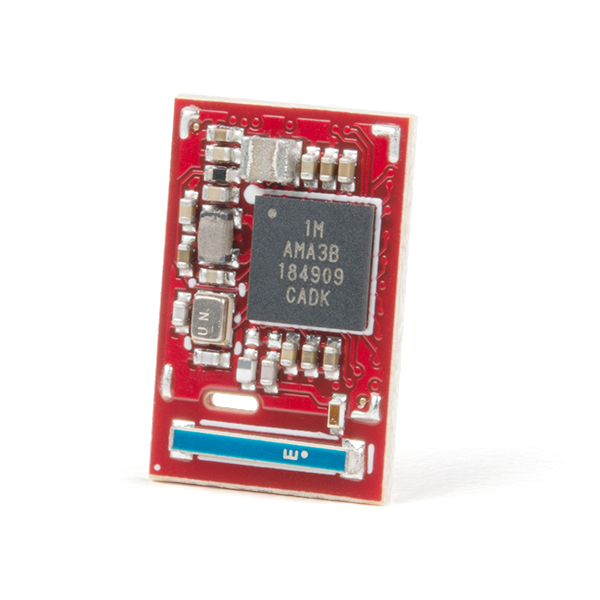
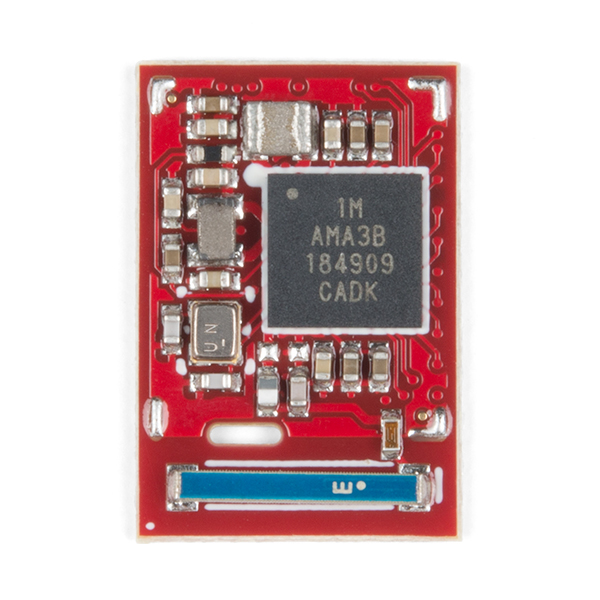
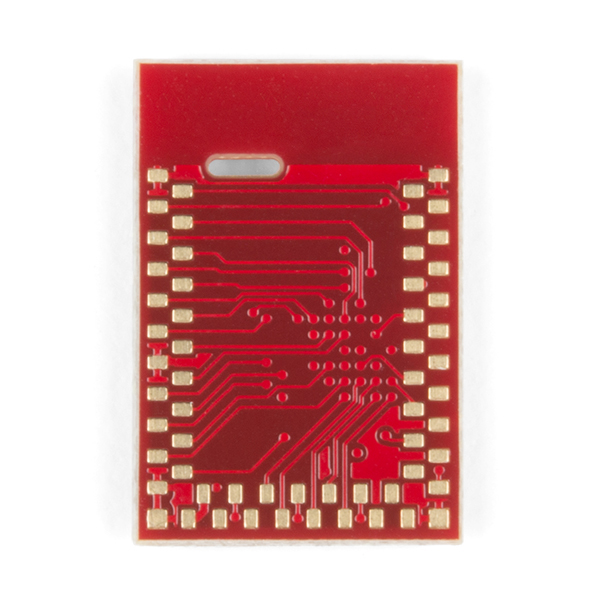
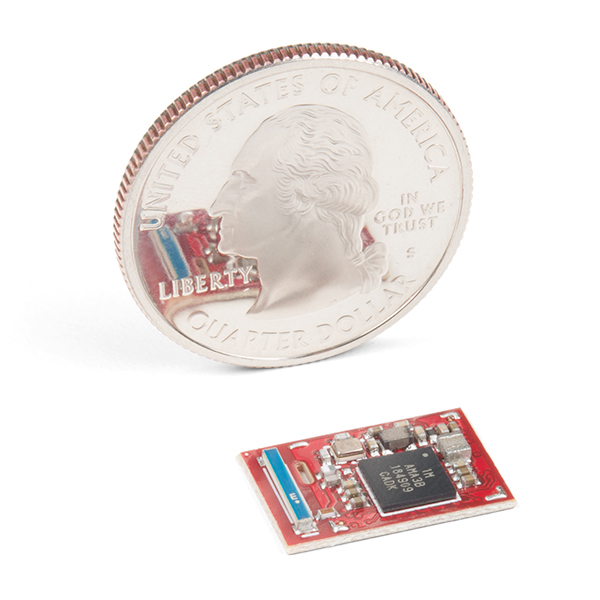
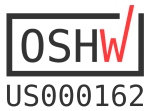
Are there any plans to port the Arduino core to PlatformIO? I'd really like to be able to use a full IDE with this, and I'm sure anybody who might want to order the upcoming tape and reel SKU would feel the same way. Arduino-CLI is fine for simpler applications, but it just doesn't cut it for big projects.
Great question. I haven't ported anything to PlatformIO before but I've opened an issue to look into it.
I'll second the request for PlatformIO support. The Arduino IDE just doesn't cut it for any 'interesting' project.
Thanks for the datapoint!
Oh them's fighting words! I disagree but I understand some folks prefer platformIO. We'll start looking into how to get it supported.
-- will it be possible in future to do a firmware-update over BLE ?
-- Bluetooth Mesh would be really really nice in future
Ambiq has an example in their SDK of updating the firmware over BLE using their open source mobile app for both iPhone and Android.
Indeed! Mesh is something we're looking into.
Can this thing run code compiled by Rust? What a match made in heaven that would be. I'm sure you're aware, but for a reminder there's a guy (japaric as he's known online) who's done a lot of work with getting rust to run on ARM uCs. Resources like https://rust-embedded.github.io/book/ have been very helpful. Anyway, what do you think?
Please see the comment above. It sounds like you should probably, file a GitHub issue for this (example for PlatformIO).
Will FCC certification substantially increase the price on the Artemis module?
Although we can't guarantee that the price won't increase, it is safe to say that the price of the Artemis module will not increase substantially. It's a strong possibility that the price won't increase at all. We just don't know for sure yet.
We are still getting everything arranged for the FCC Certified version so we can't, unfortunately, give a more committed answer but hopefully, this helps.
I'm floored that this chip advertises 6µA/MHz as an M4F, while the lowest power Atmel SAML10 advertises 25µA/MHz. Is this really true in real-world usage? Because it certainly has me rethinking my component choice for my low-power project.
The short answer is yes. We've measured down into the sub 0.6mA range successfully factoring prime numbers at 48MHz with the radio off. Getting precise measurements will require a more sophisticated setup than we had for the video.
What are the reflow temperature limits?
We're putting together a reflow profile. We'll get it posted to the integration guide as soon as possible. For now, a standard IPC profile with peak temp of 235C for 40 seconds will work well.
Does anyone know if this can go into promiscuous mode to do wireshark PCAP capture. I am looking for BTLE 5.0 Sniffer that replaces ubertooth since it is stuck at 4.x level.
Does the Artemis support Bluetooth Mesh, or it is just BLE?
We're checking with Ambiq. Additionally and if it does, we don't have examples available for mesh so it will be some time.
I saw a more recent post of yours indicating that you are now working on BLE Mesh.
Do you have a timeline, even a ballpark, when this might be implemented?
Do you know which version you are targeting? 1.0 spec is the current version, but 1.1 and 1.2 spec are already being addressed by Bluetooth SIG.